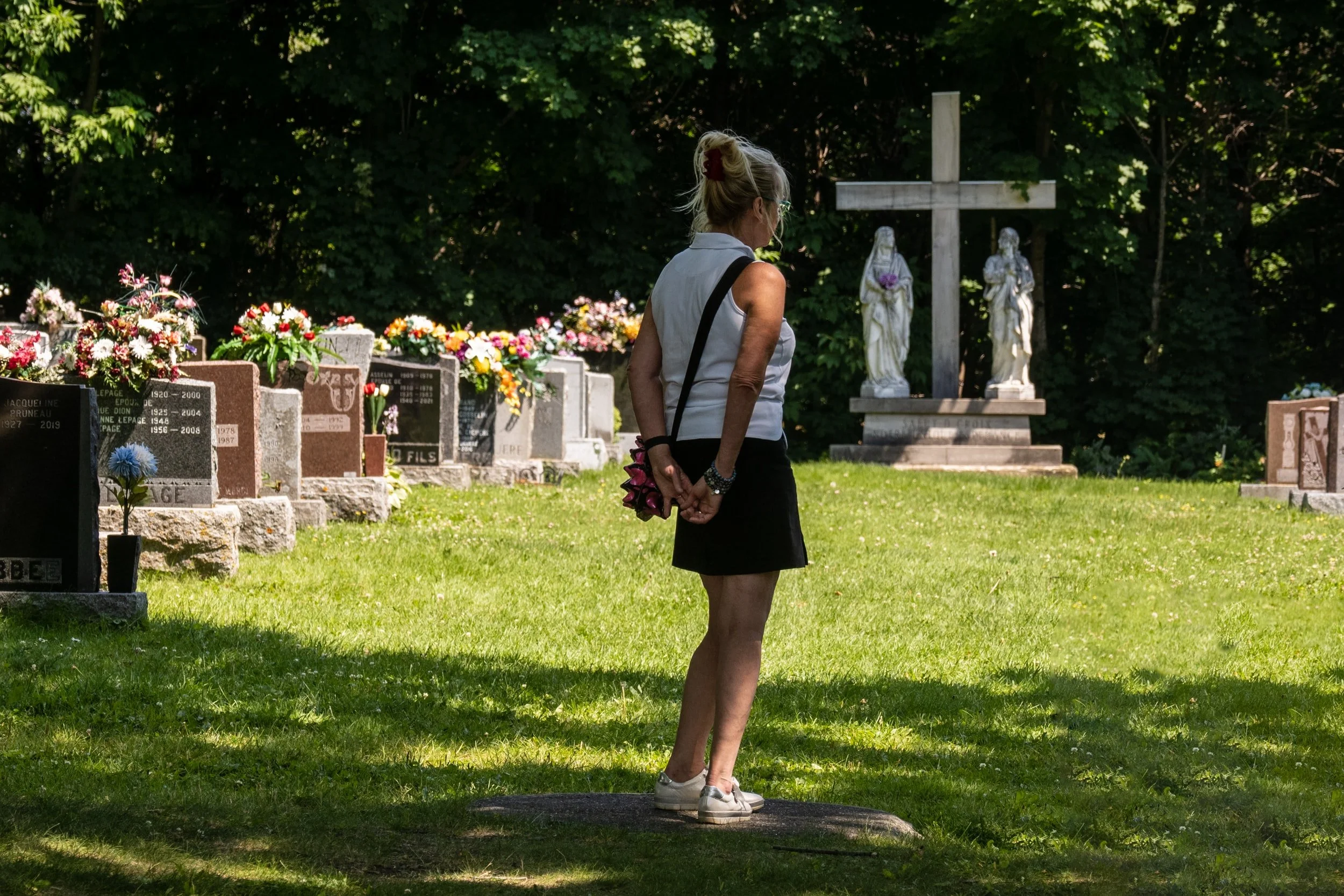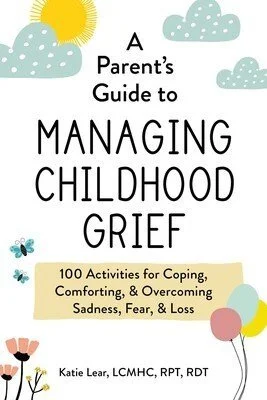What’s the right age for a child to go to a funeral? Will an elementary-aged child get anything out of the experience, or will it just be scary? Will your tween regret not attending as they grow up? What if your child is really little—2, 3, or 4 years old. Is a funeral too much for them to tolerate?
If you’re a parent who has recently lost a loved one, you may be grappling with tough questions like these. In the midst of planning for a funeral, you’re also having to consider the wellbeing of your child. You want to help your child say a healthy goodbye, but funerals can be a lot to handle, even for adults.
Let’s take a look at the benefits and drawbacks of having your child go to their loved one’s funeral. We’ll talk about why the ritual of a funeral service can be helpful for many kids. You’ll also learn how you can set your child up to have a meaningful funeral experience if they choose to attend.
What Age is Appropriate for a Child to Attend a Funeral?
There is no right or wrong age to attend a funeral. Think about how your child handles other family or group events, like church or holiday dinners. Is your child able to sit for a period of time without melting down? Can they follow social cues like taking turns or being quiet when others are speaking? If so, they should be capable of handling the funeral—provided they want to attend.
Your child’s own wishes are your most helpful guideline when making your decision. In general, if a child is old enough to express a desire to attend, they will likely benefit from having the experience. Even really young kids can benefit from being involved in an important family ritual and getting a chance to say goodbye.
It is true that children of different ages have different needs when attending a funeral. If your child is very young, you may want to think about what a reasonable amount of time would be for your child to participate.
Many Children Benefit From Attending Funerals or Memorial Services
Children grieve differently than adults, but they still need opportunities to express their feelings, talk about their loved one, and say goodbye. Rituals help us all to move through important moments in life, and connect us to something that feels bigger than ourselves. The funeral is the biggest—and sometimes the only—ritual that happens when someone dies.
Grief experts tend to agree that funerals and memorial services are beneficial for many children. They can help bereaved children move forward in their grief process and begin to heal. When asked, adults who lost loved ones as children and weren’t allowed to attend the funeral usually say they regret not being there. As sad and difficult as funerals are, they’re an important part of mourning, and we only get one chance to attend.
Some of the benefits of attending funerals for children include:
Coming to terms with the fact that a loved one has really died
Seeing a loved one for the last time
Getting a chance to say goodbye
Receiving support from other grievers
Observing how others grieve, which can reassure a child that their feelings are normal
Feeling as though they’ve done something important to honor their loved one
There Can Be Drawbacks to Attending if a Child Isn’t Ready
There are a few instances when it’s not the right choice for a child to attend a funeral. If a child is not well prepared, they may leave the funeral feeling worse, instead of better. Children are more likely to have a bad experience if they’re forced to attend the funeral, pushed to do something they don’t want to do, or if they encounter something they weren’t expected to see.
Children should be allowed to take the lead in when and how they participate. If your child doesn’t want to touch their loved one’s body, for example, there’s no need to press the issue. Children who aren’t ready to attend the funeral may experience some drawbacks from attending, such as:
Increased anxiety or fearfulness
Distress about confusing things they saw or experienced
Troubling memories, especially if they were pushed to do things that didn’t feel comfortable
Feeling a lack of control, if forced to attend
Let Your Child Make an Informed Decision About What Feels Right
At the end of the day, the most important thing is not whether or not your child attends the funeral. What matters most is that your child was given a choice. So much about death is out of our control, especially for kids, who have very little say in what happens. When possible, it makes sense to give some control back to kids and allow them to make decisions for themselves.
Help your child make an informed decision by letting them know exactly what they can expect to happen at the funeral. You can talk about where the funeral will be, who will be there, and what everyone will do to commemorate your loved one. It’s also important to give your child a heads-up about how people might behave, so they’re prepared to see a wide range of emotions from attendees. Finally, talk with your child about how their loved one’s body will appear, and whether or not there will be an open casket.
If your child decides to attend, figure out a way for them to participate that honors their age and maturity level—more on that in the next section of this post. If your child opts out of attending, offer a “Plan B” that is familiar, comforting, and low-key. The plan should include staying with a person your child knows and trusts, in a place that feels safe. New experiences can be stressful for a grieving child, and big outings like special time with friends might lead a child to decline attending a funeral when they’d otherwise choose to go.
Find Age-Appropriate Ways For Your Child to Participate in the Funeral
Kids love having a job to do and feeling included in grown-up activities. This is true for funerals, too. If your child was very close to the loved one who died, finding a way for your child to participate in the funeral or memorial service can mean a lot.
Think about ways that your child might be comfortable contributing in some way to the service. Older, more extroverted children might appreciate being asked to read something aloud. Others might prefer to choose a song or poem for someone else to share. Even something as simple as picking out a bouquet of flowers or choosing a special candle to light can help younger children feel that their voices and feelings matter.
Depending on your child’s age, you may want to consider how long, and to what extent, your child participates in the funeral. Younger children may not be capable of sitting still through an entire service. Coming up with a plan in advance will make it easier for you to follow your child’s lead on the day of the funeral. It helps to select a friend or family member to be your child’s support person. This person can quietly usher your child out of the service if it becomes too much for them to handle.
It’s also worth considering if attending a virtual funeral service makes sense for your child. If your loved one’s funeral is being live streamed, this option can offer some flexibility, especially for younger kids. Your child can watch from the comfort of home and step away as needed if their attention wanes.
Questions to Ask When Deciding Whether A Child Should Attend a Funeral
If you’re on the fence about what’s the best decision for your child, here are a few points to consider. You know your child best, and can probably make good educated guesses about what your child will need in order to process their feelings about a funeral. If you’re trying to decide how to involve your child, ask yourself the following:
Is my child able to sit still and focus during group gatherings?
Is my child highly sensitive or prone to anxiety?
How well does my child currently understand death?
What was my child’s relationship to the person who died?
How does my child feel about attending?
If your child is highly sensitive, or doesn’t currently have a strong understanding of what death means, you may need to spend some extra time preparing your child before making a decision.
If Your Child Does Not Attend, Find Another Way to Honor Your Loved One
It’s okay if your child chooses not to attend the funeral or memorial service. As long as they have been given the information they need to make a thoughtful decision, whatever choice they make is just fine. You can help your child experience some of the benefits of a funeral by creating your own rituals at home.
Help your child memorialize their loved one by setting aside time to do something together that feels special. You can think about what your child might enjoy, or consider finding something that was meaningful to your loved one. Reading a book or poem together, planting a memorial tree, cooking a loved one’s favorite meal, or visiting somewhere significant to your loved one are all ways to help your child grieve. Whatever activity you choose, be sure to offer ample opportunities to share feelings and to say goodbye to your child’s loved one.
Help Your Child Navigate Funerals, Grief, and Loss
If your child has recently lost a loved one, the funeral is just the beginning of a long process of mourning and healing. Children need ongoing support from someone they love and trust in order to recover from grief. You can help your child sort through their complicated feelings over time through repeated opportunities to remember and share memories of their loved one.
My book, A Parent’s Guide to Managing Childhood Grief, offers simple ways to support children before, during, and after a funeral. In it, you’ll find activities designed to help kids explore and learn about many facets of grief that can be tricky to talk about. From learning about death and dying to finding meaning and reflecting on growth, the activities can help your family process grief in the days immediately following a death as well as in the months or years to come.
A Parent’s Guide to Managing Childhood Grief is available on Amazon, Barnes & Noble, or through your local independent bookstore.





